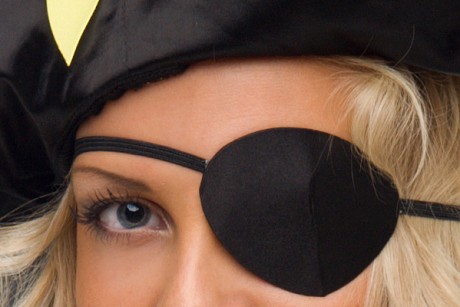
This is a guest post by Abhishek Khandelwal.
Never heard of Emanuel? Neither have most people. But Google’s latest update, unofficially dubbed “Emanuel” by Search Engine Land after Ari Emanuel, the Hollywood talent agent and William Morris Endeavour co-CEO, who first came up with the suggestion that Google should perhaps look into penalising pirated content. While the process is not as stringent as the updates we’ve seen with the Penguin and Panda algorithms, Google has revealed that any website with a number of valid “takedown requests” for copyright infringement may in fact see their rankings dropping. As they stated on their official blog on 10th August:
“…We will begin taking into account a new signal in our rankings: the number of valid copyright removal notices we receive for any given site. Sites with high numbers of removal notices may appear lower in our results … We’re now receiving and processing more copyright removal notices every day than we did in all of 2009 —more than 4.3 million URLs in the last 30 days alone. We will now be using this data as a signal in our search rankings.”
And while Google claims that they cannot legally determine which copyrights have been violated and which haven’t, any website can be targeted as allegedly violating copyrights and can have their content removed, if Google determines the claim is “valid.” The copyright can apply to anything, from written content, to images, to videos and so on.
The retaliation? The wrongly accused can file a “counter-notice” to put their case forward and subsequently get their content restored, but one wonders how much this will impact their rankings. While simply putting incorrectly penalised content back up there might solve the problem at first glance, we all know that recovering from severely low Google rankings is not something that happens very easily.

All of this, of course, is in the hope of providing better user experiences for those surfing the net and to protect the rights of copyright owners across the web, penalising those who feel they can infringe without any consequences. Big sites, however, like YouTube, Facebook and Tumblr are not expected to be hit at all, according to Google, despite the high number of “takedown requests” and infringement notices they receive.
Why? Google says that the “takedown requests” are only one of many factors its algorithms consider in their ranking “decisions.” Similarly, other elements (like content, backlinks etc.) can still influence the rankings of those websites, allowing them to remain at the top of Google SERPs.
But one wonders, despite Google’s claim that YouTube and other sites fall under the same umbrella as everyone else, if Google essentially doesn’t want to get rid of such large, popular sites focused on content sharing and driving rankings elsewhere. Many are also concerned that Google is also simply trying to get in Hollywood’s good books, jumping on the piracy bandwagon in the hope of fuelling stronger business relationships with the industry, rather than actually implementing this ‘Emanuel’ update in order to create a better user experience for all.




